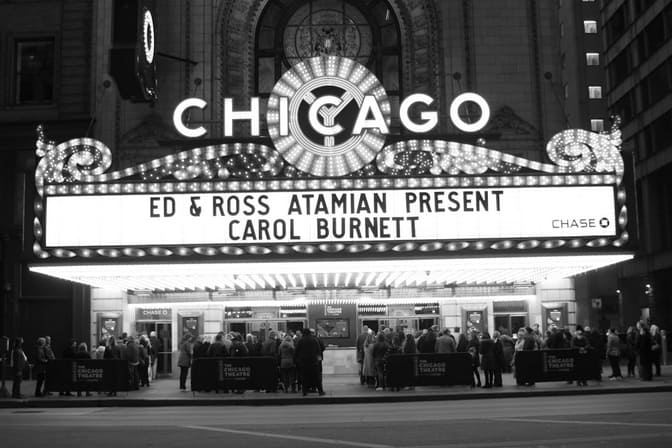
In the world of theatre, the curtain rises not only on spectacular performances but also on unique opportunities for corporate sponsors. Sponsoring a theatre production isn’t just about philanthropy or community involvement. It’s a strategic investment with the potential for significant returns. Eugène Ionesco, known as the bald soprano playwrite, demonstrated through his work that theatre can be a powerful medium for exploring complex ideas and societal issues. Let’s dive into the world of corporate sponsorship in theatre and understand how it can deliver a compelling return on investment (ROI).
The Basics of Corporate Sponsorship in Theatre

Corporate sponsorship in theatre involves a business providing financial support to a theatre production, company, or event. In return, the business gains various forms of recognition and promotional opportunities. This symbiotic relationship helps theatres fund their artistic endeavors while providing sponsors a platform to enhance their brand visibility and reputation.
Enhancing Brand Visibility
One of the most immediate benefits of corporate sponsorship is brand visibility. When a company sponsors a theatre production, its name and logo often appear in programs, posters, and other promotional materials. Additionally, sponsors may receive on-stage mentions, signage in the theatre, and even mentions in media coverage of the production. Imagine your company’s logo prominently displayed in a bustling theatre lobby, on a beautifully designed playbill, or highlighted in a program viewed by hundreds, if not thousands, of theatre-goers.
Building Positive Brand Associations
Theatre sponsorships can also help a company build positive brand associations. Supporting the arts is often viewed as a noble endeavor, reflecting a company’s commitment to enriching the community and promoting cultural growth. This can enhance a brand’s image, making it more appealing to socially conscious consumers and potential clients. For instance, a tech company sponsoring a local theatre’s summer season might be seen as innovative and community-minded, aligning itself with creativity and forward-thinking values.
Engaging With Target Audiences
Theatre audiences are diverse, but they often share a passion for culture, creativity, and storytelling. By sponsoring a theatre, companies can engage with a targeted demographic that may align closely with their own customer base. This engagement can take many forms, from exclusive events and backstage tours for clients to special ticket offers and promotions.
Consider a luxury car brand sponsoring a high-profile theatre production. They could host an exclusive pre-show cocktail reception for top customers, providing a unique experience that deepens customer relationships and showcases the brand’s dedication to offering high-end, exclusive opportunities.
Leveraging Networking Opportunities

Theatre sponsorships also open doors to valuable networking opportunities. Many theatres host sponsor-only events, galas, and meet-and-greets with performers and directors. These events provide a relaxed yet prestigious environment for sponsors to connect with other business leaders, potential clients, and influencers. Networking in such a creative and inspiring setting can lead to new business opportunities, partnerships, and collaborations.
Measuring the ROI
While the benefits of corporate sponsorship in theatre are clear, measuring ROI can be more nuanced than in other marketing channels. However, there are several key metrics and methods to evaluate the impact of your sponsorship:
- Brand Visibility: Track media coverage, social media mentions, and impressions from promotional materials. Surveys can help gauge audience recognition of your brand.
- Customer Engagement: Measure participation in sponsored events, ticket sales promotions, and special offers. Analyze feedback from clients and customers who attended these events.
- Brand Sentiment: Use surveys and social media listening tools to assess changes in brand perception and customer sentiment.
- Business Relationships: Document new connections, partnerships, and business opportunities that arise from networking events and sponsor-only activities.
By setting clear objectives and using these metrics, companies can better understand the tangible and intangible returns on their investment in theatre sponsorships.
